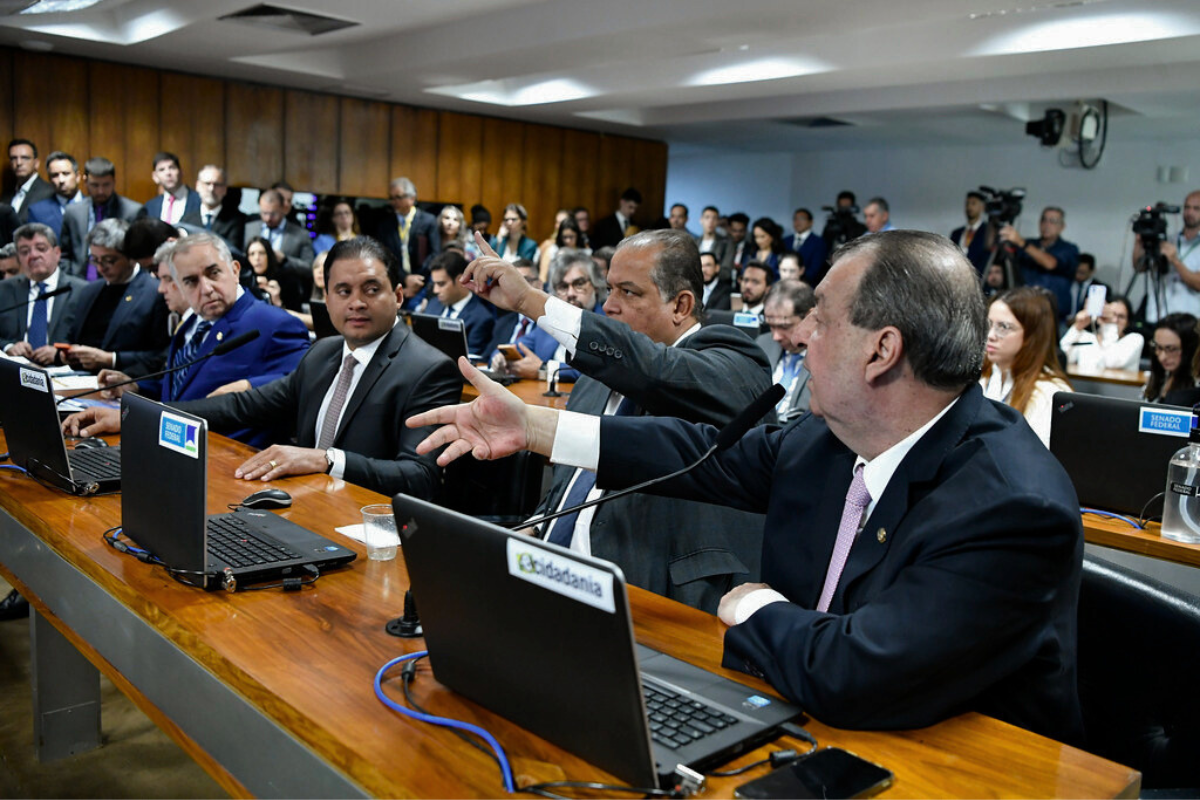Senator Rogério Marinho, the opposition whip in the Senate, on Tuesday requested that the Economic Affairs Committee postpone a vote on the government-sponsored fiscal framework proposal.
The committee’s vote was rescheduled for Wednesday morning, but the bill’s rapporteur Omar Aziz expressed concern about quorum, as the Senate will on that same day kickstart confirmation hearings for a Supreme Court nominee.
The new fiscal framework was designed to replace the spending cap adopted in 2016, limiting the increase of public spending to no more than the official inflation rate of the previous year. Mr. Aziz only published his report on the bill today, which gives the government more fiscal room to increase expenses than the draft approved by the House.
Under the rules proposed by the Luiz Inácio Lula da Silva administration, real growth in spending would be limited to 70 percent of revenue growth if primary surplus targets are met. For example: if revenues grow by 2 percent, expenditures can grow by up to 1.4 percent above inflation.
Mr. Aziz removed the educational fund Fundeb and a federal fund destined for the local Brasília government from the spending baseline used to set expenditure limits for the federal administration. These funds were not included in the original bill submitted by the Finance Ministry, but were added by House lawmakers in order to tighten the government’s discretionary spending.
Mr. Aziz also exempted spending on science, technology, and innovation from the baseline. His report ignored the advice of two economics professors who spoke in the Economic Affairs Committee public hearing, and who both understand that the proposed fiscal framework is too loose.
José Márcio Camargo, a professor at the Pontifical Catholic University of Rio de Janeiro and a partner at Genial Investimentos, argued that the government’s stated fiscal goals “show a certain exaggerated optimism,” and that the bill is “insufficient to stabilize the public debt at a reasonable level in the coming years.”
He estimates that debt will reach 93 percent of GDP by 2033, a level similar to those of developed countries and which is “not financeable” for Brazil.
Marcos José Mendes, a professor at the São Paulo-based Insper business school, said that under the proposed rules, the path to debt sustainability goes through tax increases — or allowing inflation to corrode the public debt. Mr. Mendes served in the Finance Ministry during the Temer administration (2016-2018), when the debt ceiling was enacted.
The Independent Fiscal Institution (IFI), a think tank operating under the Senate’s umbrella, recently argued in a report that the new rules are too complex — which makes them less transparent.
The fiscal framework bill was approved in the House by an overwhelming 372-108 majority in May. If the changes proposed by Senator Aziz are accepted, the bill will have to return to the House where it would need to undergo another vote (until both chambers agree on the same text, the bill will ping pong between them).


 Search
Search










































